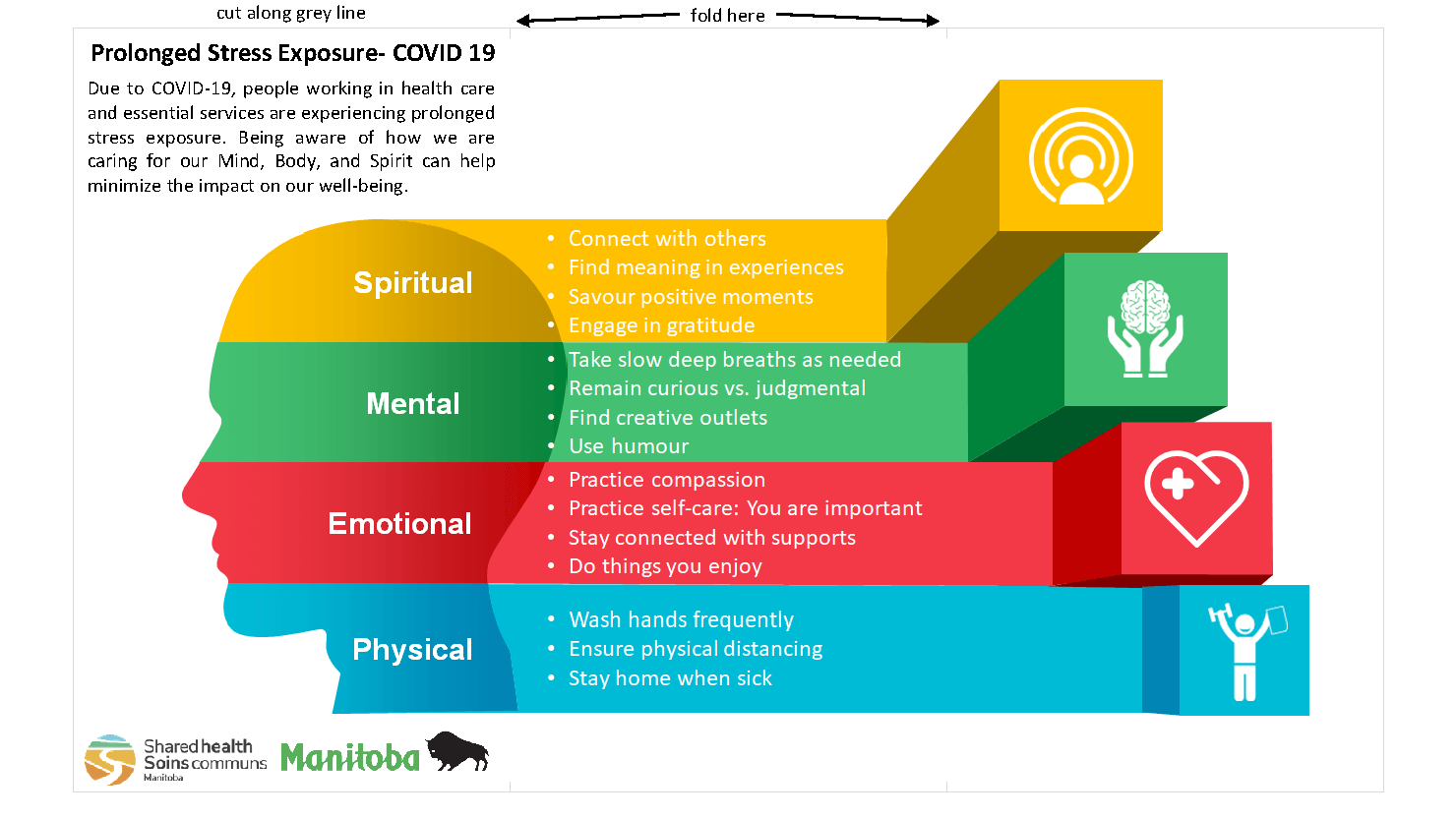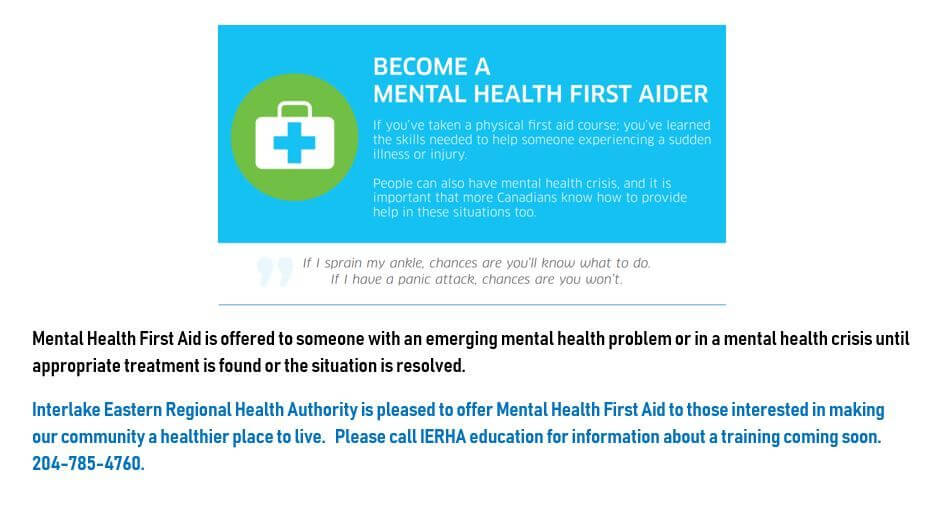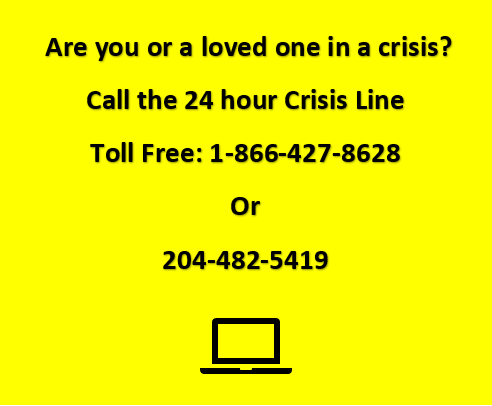Mental Health & Addictions
Mental health includes our emotional and social well being. It affects how we think, feel and act. It also helps determine how we handle stress, build relationships, and make choices. Mental health is important at every stage of life, from childhood through to adulthood.
Use the tabs on the right to navigate through our programs, community partners, and resources.
Below, you will find general information on promoting positive mental health along with the contact information for Crisis Services.
If you feel overwhelmed, talk to a counsellor or another trusted person in your community (e.g. religious leader or community elder).
Mental Health and Addictions Contact Information
24 Hour Crisis Line:
1-866-427-8628 | 204-482-5419
Mobile Crisis Services – Adult & Youth Outreach Team:
1-877-499-8770 | 204-482-5376
Crisis Stabilization Unit (CSU):
1-888-482-5361 | 204-482-5361
Klinic Crisis Line:
1-888-322-3019 | 204-786-8686
Kids Help Line:
1-800-668-6868 | Kids Help Phone Website
Schedule an appointment to discuss Child and Adolescent Mental Health services, Adult Mental Health services and Mental Health Services for the Elderly.
1-866-757-6205 | 204-785-7752
Problem Gambling Help Line (Toll-Free): 1-800-463-1554
To contact the Community Addictions Program please refer to the Addictions Services section on our website.
Click on the blue buttons below for more information.
- Promoting Positive Mental Health
- The ABC’s of Self-Care
- Self-Compassion
- Mental Health Resource Guide
- Mental Health First Aid
- ASIST
- Recovery
Promoting positive mental health
A consistent self-care practice is a crucial step in achieving and maintaining positive mental health. Self-care is all the things you do to take care of your physical, emotional, spiritual, and psychological health.
Here are some ideas you may like to try:
| Stay hydrated. | Get ample sleep. | Move your body. | Take deep breaths – Use the Calm Breathe Bubble |
| Walk outside with a friend. | Talk to a counsellor. | Journal. | Be mindful of the content you are taking in through social media. Is it negatively affecting your mental health? |
| Try meditation. | Connect with a church or other place of worship. | See your primary care provider regularly. | Invest your time in learning a new hobby. Or make time for existing hobbies and interests. |
| Connect with others virtually. | Set boundaries. | Read a book. | Write out 3 good things that happened in your day, everyday. |
| Clean and make your bed. | Take a bath or a shower. | Turn the music up and dance. | Do something nice for someone else. |
| Eat well. | Ask for help and accept it when it is offered. | Give yourself permission to rest! | Plan something to look forward to. |

The ABC’s of self-care. Self-care is more important now than ever!
Self-Compassion
In these times of quickly moving communication and uncertainty, you are encouraged to not only have empathy and compassion for your friends, family, and the general population, but also for yourselves. Please take the time to watch this video on self-compassion. It speaks volumes to the current common human experience we are all facing.


Recovery: Hope Changes Everything

Please provide your feedback about this webpage.







